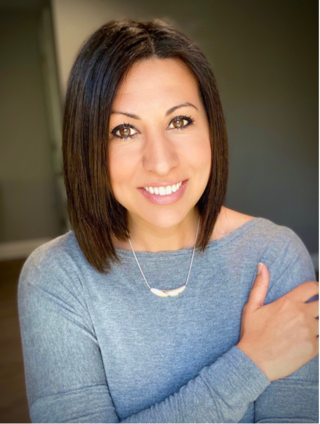Health
Being Intentional to Seek Emotional Healthiness
The importance of asking yourself and others the question: Are you really OK?
Posted May 26, 2021 Reviewed by Devon Frye
We all experience emotional and physical struggles. How can we be real with our struggles and work productively through them? In this interview, Debra Fileta emphasizes the importance of intentionality in seeking emotional healthiness in the face of mental health struggles.

Debra Fileta is a licensed professional counselor, host of the Love + Relationships podcast, and the author of Are You Really OK?: Getting Real about Who You Are, How You’re Doing, and Why It Matters (2021). A passionate speaker, Fileta challenges people to have a psychologically and spiritually healthy approach to relationships.
Jamie Aten: Why did you set out to write your book?
Debra Fileta: None of us are immune to the struggles of mental and emotional health. And if you think you’re immune, you’re probably more susceptible! It doesn’t matter your age, race, religion, or gender. The message out of this book was birthed out of pure need—a need I saw in my personal life, as well as a need I saw in the life of my clients—everyday people who found themselves really struggling. I also experienced my own journey of facing my past trauma, overcoming anxiety and panic attacks, and learning to be intentional about my mental and emotional health. I was able to find my way out of that hard place, and I want to help people get to a better place as well.
JA: What is the primary takeaway you hope readers will learn?
DF: Becoming healthy isn’t just something that happens automatically. I’m offering people a practical plan to get healthy emotionally, spiritually, mentally, and physically. Actual steps they can take to get there. I want people to understand that time alone doesn’t heal all wounds—we have to be intentional about how we use that time. I believe it’s possible to alleviate the cycle of mental struggles such as anxiety and depression, overcome emotional obstacles in our life, understand our true identity, and live in freedom. But we can’t get there without putting in the effort.
JA: What are some lessons that can help people live more resiliently?
DF: One important lesson is understanding that being emotionally healthy means we learn to identify and express our emotions in a productive way. Human beings are like volcanoes—those unexpressed emotions will build up pressure underneath the surface, until they eventually find the point of least resistance and cause an emotional explosion. That emotional explosion could look like a panic attack, depression, withdrawal and isolation, burnout, relationship struggles, anger and rage, addictions, etc. Especially after 2020, it’s important for us to learn to come face to face with how we’re feeling and deal with it in healthy ways.
JA: What are some insights that could help readers support a friend or loved one?
DF: We need to start getting comfortable with asking the question, "Are you really OK?" and be comfortable with hearing the answer. It’s easy for us to engage in superficial conversations, not really getting past the surface of how our friends and loved ones are doing—but when we start asking real questions, we’ll get real answers. We’ll realize that we’re all on this journey together. We just need to show some genuine love and care to help get each other through.
JA: Anything else you would like to share?
DF: You know, 2020 was a really hard year for so many people. I think it would be easy for us to go on with life as if nothing happened, to try and get back to normal. But if we don’t deal with our past, we’ll be haunted by it. You can begin to deal with the layers of what this past year brought and come out healthier on the other side. But the first step is acknowledging it. Putting words to your experience, and pain. Affirming what you’ve been through and how it’s impacted your life. The next step is learning from it, by taking control of how you’ll allow it to shape you and change you—by choosing to become better rather than choosing to become bitter.
I encourage you to invite a professional counselor to join you on the journey of confronting 2020. Because it takes intentional work for us to get real about how we’re really doing and come out healthier on the other side.
To find a therapist near you, visit the Psychology Today Therapy Directory.


